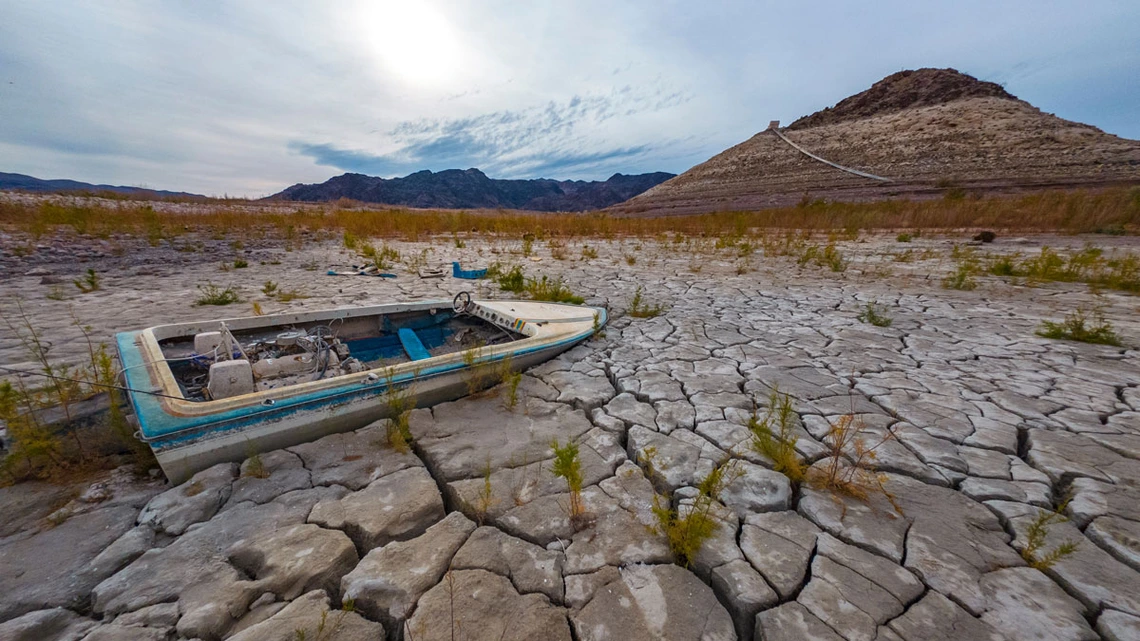WRRC Seminar Revisits Colorado Basin Drought Research After 25 Years

Lake Mead, Adobe Stock
On Wednesday, April 12, the WRRC hosted a webinar featuring presentations from a panel of authors who contributed papers to the Journal of the American Water Resources Association (JAWRA) 2022 Featured Collection, Severe Sustained Drought Revisited: Managing the Colorado River System in Times of Water Shortage 25 Years Later. The webinar was quite timely in light of this week’s Bureau of Reclamation release of a draft Supplemental Environmental Impact Statement for Near-term Colorado River Operations. UArizona professor George Frisvold moderated the panel, which included UArizona professors Connie Woodhouse, Kathy Jacobs, and Bonnie Colby, Cooperative Extension Economic Impact Analyst Dari Duval, and USGS Research Scientist Pamela Nagler. Their research follows up on work published in 1995, presenting collaborative research studies supported by the Powell Consortium. The 1995 special issue, Severe Sustained Drought: Managing the Colorado River System in Times of Water Shortage, and the publications that followed from it have “shaped thought and encouraged multi-disciplinary research on drought and water scarcity in the United States Southwest.”
Drawing from her work with the Laboratory of Tree-Ring Research, Connie Woodhouse kicked off the presentations, sharing her work using tree ring reconstructions of historical hydrology to assess drought on the Colorado River and, as she noted, “put recent and current events into a long-term context.” Next, Center for Climate Adaptation Science and Solutions Director Kathy Jacobs spoke about climate change effects on extreme events in the Colorado Basin, including extreme temperatures, precipitation, flooding, and fires. Bonnie Colby, professor of Agricultural and Resource Economics, shared her study on incentive-based urban water policies in Colorado River Basin states. Economic Impact Analyst Dari Duval discussed the effects of reservoir levels at Lakes Powell and Mead on recreational use and local economies. The final presentation from Pamela Nagler addressed her USGS study on impacts of riparian ecosystem restoration in the Colorado River delta by monitoring greenness and evapotranspiration. Together, the presentations provided an excellent overview and dynamic picture of Colorado River management, assessing the past and looking to the future. The panel presentations were followed by an engaging Q&A with the audience. A recording of the webinar and additional information are available on the WRRC event webpage.

